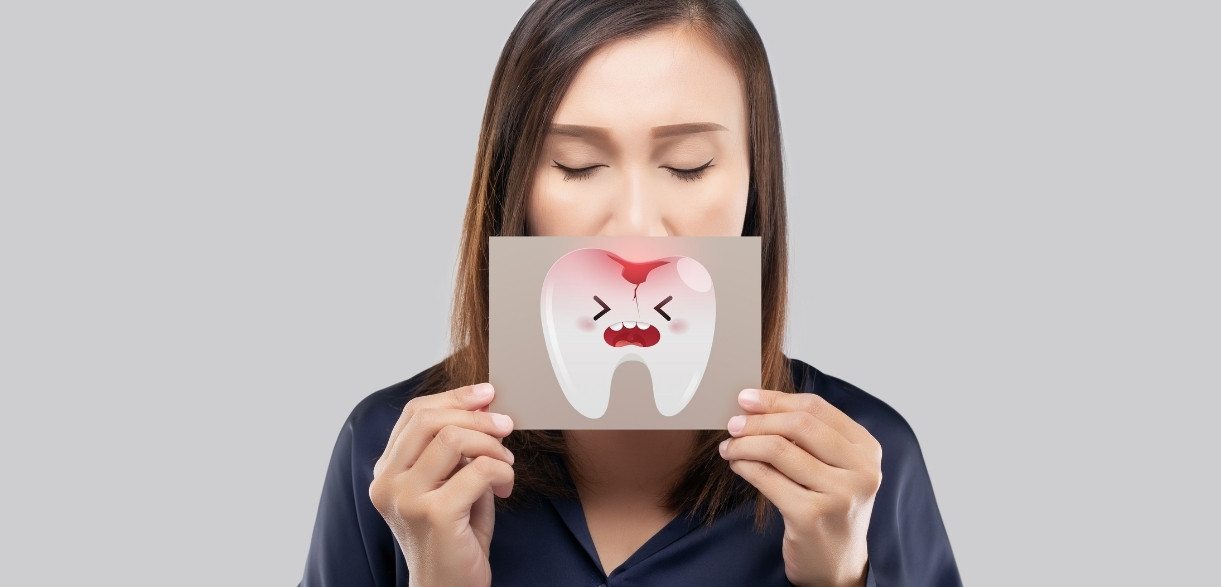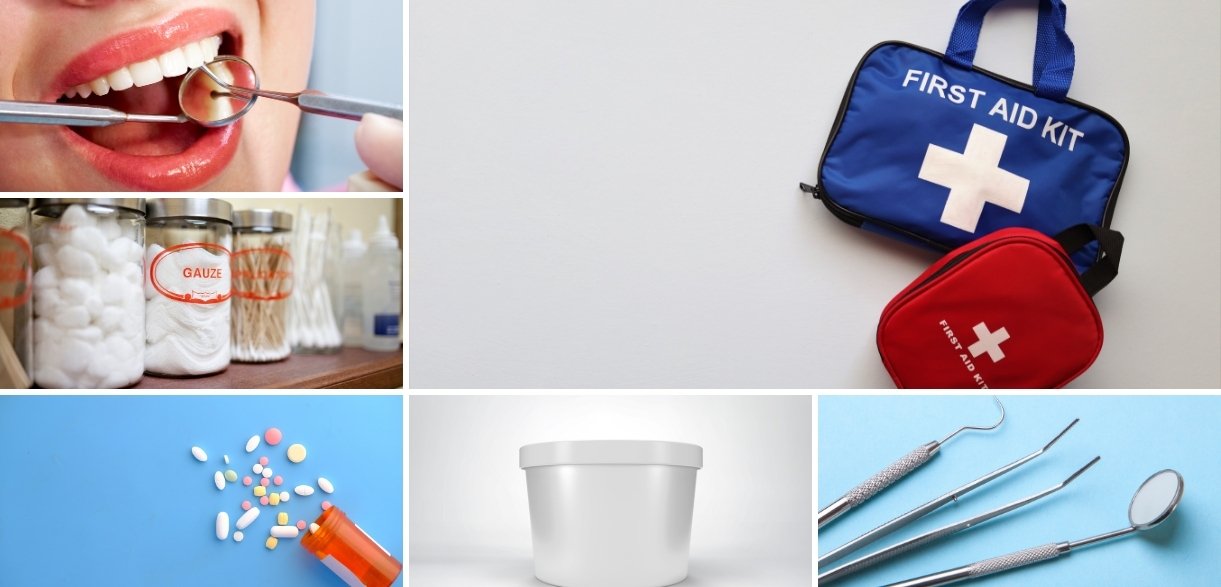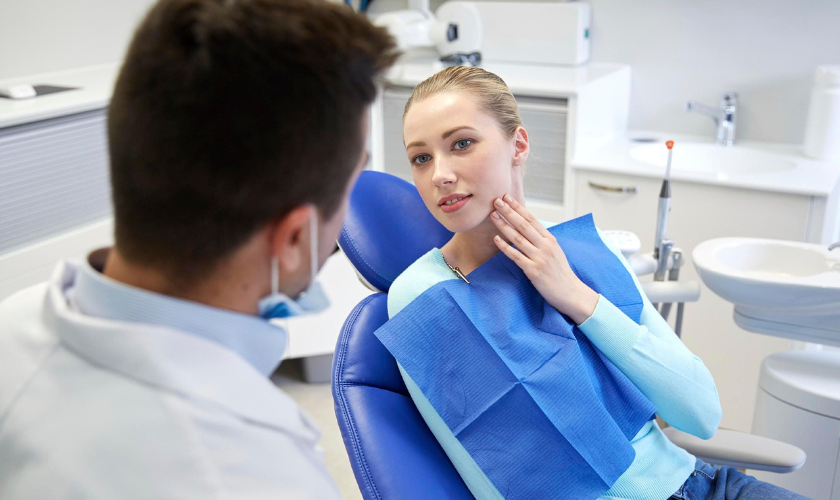
Dental health is crucial to overall well-being, yet dental emergencies can strike when least expected. A dental emergency can disrupt daily activities, causing discomfort, stress, and even long-term damage if not addressed promptly.
With their busy lifestyles and active routines, South Hills residents often face unique challenges that can lead to unexpected dental issues. Knowing what to do can make all the difference, whether it’s a sudden toothache, an injury during sports, or a cavity-causing unbearable pain.
This guide will explore the top four causes of dental emergencies, providing practical tips on preventing them. By being proactive, you can save yourself from the hassle of dealing with a dental crisis and avoid seeking an urgent dentist when a problem could have been prevented.
What is a Dental Emergency?
A dental emergency refers to any oral health issue that requires immediate attention due to pain, injury, or infection. Dental emergencies range from common problems like severe toothache to more serious issues such as broken teeth, knocked-out teeth, or gum infections.
For example, if you experience sudden, intense pain from a cavity or if your tooth is knocked out in an accident, you need to see an emergency dentist right away. Some issues, like a small chip in a tooth, may not feel urgent but can worsen quickly if not treated.
Infections, like an abscess, can spread quickly, causing more serious complications. The good news is that dental emergencies are preventable with regular care and precautions.
By following good oral hygiene practices, wearing protective gear during sports, and visiting your dentist for regular check-ups, you can avoid the stress and pain of an emergency. The goal is to catch dental problems before they become emergencies.
The Top 4 Causes of Dental Emergencies
a. Trauma or Accidents
One of the leading causes of dental emergencies is trauma. Accidents such as falls, car crashes, or sports injuries can lead to broken or knocked-out teeth. For active South Hills residents, participating in recreational sports or outdoor activities can heighten the risk of tooth damage.
Trauma can happen unexpectedly, but there are ways to prevent it. Wearing a mouthguard during contact sports such as football, basketball, or even skateboarding can protect your teeth from injury.
Additionally, being mindful of your surroundings and avoiding risky activities can also reduce the likelihood of trauma. If you experience a dental injury, seeing a doctor as soon as possible is essential to prevent further damage.
b. Tooth Decay and Cavities
Poor oral hygiene is a leading contributor to dental emergencies. When you neglect brushing and flossing, cavities form and worsen over time. Cavities can lead to severe tooth pain, abscesses, or infections if left untreated.
In South Hills, where many people enjoy a sweet treat or a cup of coffee daily, sugary foods and drinks can speed up the decay process. To prevent cavities, brush your teeth at least twice daily with fluoride toothpaste, floss daily, and avoid sugary snacks.
c. Gum Disease
It starts with inflammation of the gums and, if left untreated, can lead to severe complications like tooth loss or an infection. Gum disease develops over time due to plaque buildup along the gumline.
For South Hills residents, this can happen easily with a busy lifestyle and inadequate oral care. Preventing gum disease requires consistent brushing, flossing, and regular professional cleanings. Quitting smoking and managing conditions like diabetes also reduce the risk.
If you notice signs such as bleeding gums, bad breath, or swelling, consult an emergency dentist promptly to avoid severe damage.
d. Clenching and Grinding Teeth
Many people clench or grind their teeth due to stress, anxiety, or misaligned teeth. This can lead to tooth wear, jaw pain, or even cracked teeth. In South Hills, a fast-paced lifestyle can often lead to tension and anxiety, which worsens this habit.
Preventing this issue involves managing stress, wearing a nightguard to protect your teeth while you sleep, and consulting a dentist for bite analysis if needed. A proper diagnosis and intervention can help prevent more serious dental emergencies.
How to Handle a Dental Emergency?
It’s important to act quickly to prevent further damage in a dental emergency. Here’s what to do:
- Knocked-Out Tooth: If a tooth gets knocked out, rinse it gently with water (don’t scrub it) and try to place it back in its socket. Keep the tooth moist in milk or water if this isn’t possible. Get to a dental specialist as quickly as possible. Time is critical!
- Toothache: For sudden tooth pain, rinse your mouth with warm water and floss to remove any food stuck between your teeth. Avoid putting heat or ice directly on the tooth, which could worsen the pain.
- Broken Tooth: If you break a tooth, try to save any pieces. Apply a cold compress to reduce swelling and see an emergency dentist immediately.
- Abscess or Infection: It may be a sign of infection if you notice swelling or pus near the gums. Don’t wait – contact your nearby dental clinic right away.
How Regular Dental Visits Help Prevent Emergencies?
Preventing dental emergencies starts with routine dental care. Regular check-ups allow your dentist to spot potential issues like cavities, gum disease, or misalignment before they become emergencies. Early detection of problems like a small cavity can save you from pain and costly procedures later.
In South Hills, many local dentists offer cleanings, sealants, fluoride treatments, and oral cancer screenings. These preventative measures help keep your teeth healthy and free from emergencies. A consistent dental care routine and regular visits give you the best chance at avoiding those dreaded emergency dentist visits.
Dental emergencies can be stressful, painful, and costly, but many can be avoided with proactive care. Trauma, cavities, gum disease, and teeth grinding are the top causes of dental emergencies, but each is preventable. You can avoid needing an emergency dentist by maintaining good oral hygiene, wearing protective gear, and visiting your dentist regularly.
Don’t wait for problems to arise – take steps today to protect your dental health and save yourself from an emergency. If you haven’t already, schedule your next dental check-up and ensure your smile stays healthy and bright!





